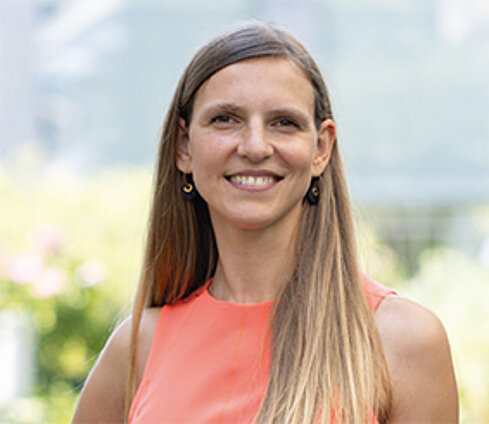2024 Finalist Claudia Kathe, Ph.D., University of Lausanne, Department of Fundamental Neurosciences, Switzerland

Claudia Kathe completed her undergraduate degree in Neuroscience at King’s College London. She continued her studies at King’s College London, earning her Ph.D. in the laboratories of Dr. Lawrence Moon and Prof. Stephen McMahon, where she developed novel therapies for forelimb spasticity. Claudia then secured a postdoctoral fellowship and joined Prof. Grégoire Courtine’s laboratory at the Swiss Federal Institute of Technology Lausanne (EPFL), where she identified a single population of neurons in the spinal cord that restores walking after paralysis. Claudia is now an Assistant Professor at the Department of Fundamental Neurosciences, University of Lausanne, with a laboratory focused on elucidating the role of spinal circuits in sensorimotor disorders.
Essay: “Rewiring movements”
Walking is seemingly effortless for most of us. For individuals with spinal cord injuries, where the communication between the brain and the spinal cord is disrupted, this natural, almost automatic ability to step is often lost leading to significant mobility impairments, and, in many cases, permanent paralysis. A major priority in spinal cord injury research has been restoring communication between the brain and the spinal cord. However, a deeper understanding of how we can target neurons located in the spinal cord itself could provide an alternative strategy for improving motor function. Dr. Claudia Kathe and colleagues identified a single neuronal population within the spinal cord that emerges to be necessary and sufficient to restore walking after paralysis, whereas its role in healthy conditions seems less imperative. When rehabilitative therapies, enabled by electrical epidural stimulation are applied, these neurons rewire to become important integrators of sensory and motor information that facilitate the recovery of motor function. This discovery highlights the importance of identifying which neuronal populations are targeted by neuromodulating therapies and suggests that future therapeutic interventions may benefit from being further refined and selective.
For Claudia Kathe’s full essay, see Science online.
